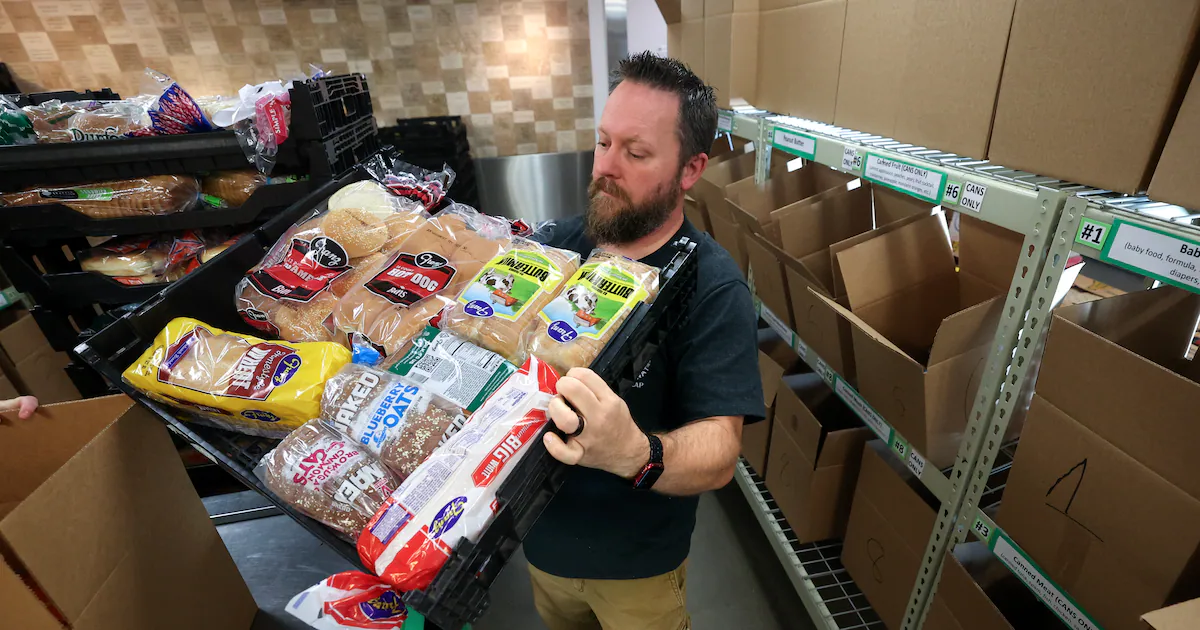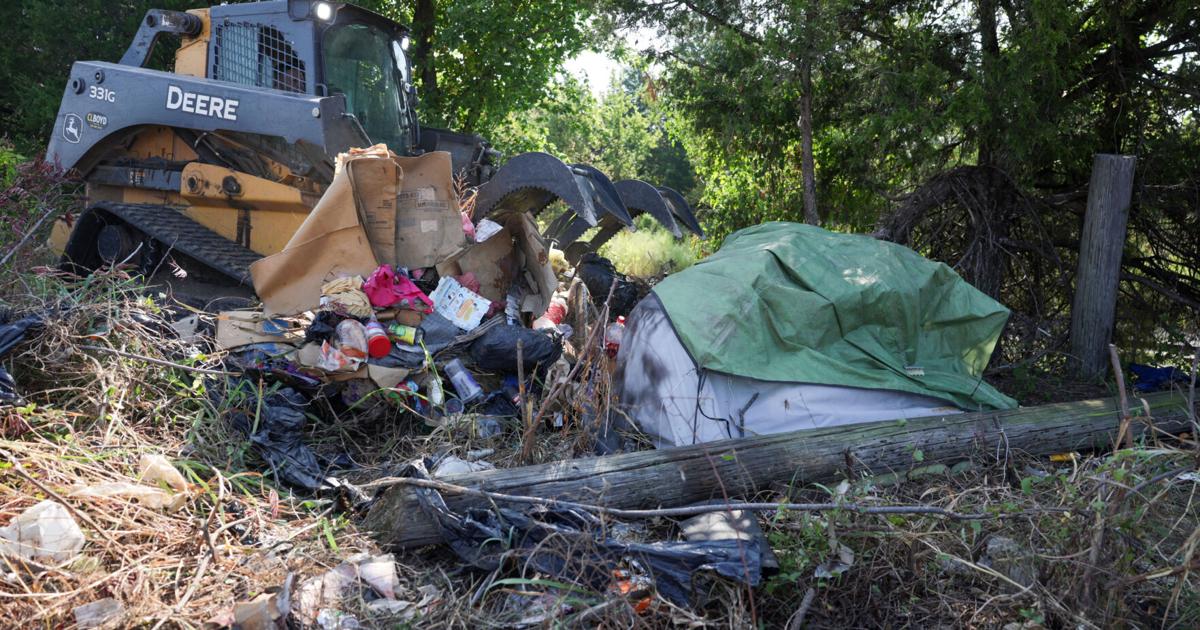Copyright Salt Lake City Deseret News

As tens of thousands of state residents stand to lose their Supplemental Nutrition Assistance Payments, state officials say they won’t backfill the lost federal funds, but are looking for ways to help those in need. Utah Senate President Stuart Adams said if the shutdown persists it is “unrealistic” for the state to provide the $33 million needed to fully fund SNAP in November for the 86,000 households and 177,000 individuals in Utah who rely on it for food subsidies. But, he said, lawmakers are looking for ways to help those who rely on the program for food subsidies. “It would not be appropriate for the state to totally backfill SNAP but we’re working very hard on options to help those in need,” Adams told the Deseret News. “We are very aware of the people on this program and want to make sure they’re taken care of.” On Friday, the U.S. Department of Agriculture, which oversees SNAP, ordered Utah’s Department of Workforce Services to suspend November allotments and clarified that households may continue to redeem unused benefits from past months. State agencies were also notified that USDA will not use $5 billion in contingency funds to help cover the $8 billion in SNAP benefits for November because the contingency funds are meant to cover shortfalls in appropriated sums — and no money has been appropriated. The USDA memo, obtained by the Deseret News, informed agencies that since SNAP is fully federally funded, unlike some other programs, it will not be possible for states to be reimbursed for any expenditures they might make to provide the benefits. First time SNAP impacted by shutdown The federal shutdown has now affected Utah’s 40,000 federal employees, and some federal program recipients, for 27 days, beginning on Oct. 1 after Democrats voted against a Republican-sponsored funding extension. While it has yet to break the record set in 2019, when the shutdown lasted for 35 days, the current shutdown appears to be the first to impact the SNAP program, DWS spokesperson Becky Wickstrom said. “We have never seen this happen before,” Wickstrom told the Deseret News. “This is going to be hard for a lot of people. This is something we haven’t experienced before.” It has been difficult for DWS to get updated information on how the shutdown will impact government programs, Wickstrom said, because many federal workers have been furloughed with no promise of compensation. If lawmakers fail to pass a funding bill by Friday night, SNAP benefits for the month of November will not go out and “there will be added strain to our system,” according to Wickstrom. But Wickstrom said she expects Utah’s “generous” community to step in. The state consistently ranks No. 1 in the nation for money donated to charity, hours volunteered for service and kind acts provided to neighbors. The Church of Jesus Christ of Latter-day Saints, which is headquartered in Salt Lake City, is one of the most prolific charitable organizations globally, providing $1.45 billion in humanitarian aid and welfare efforts in 2024 alone. Patrick McIntyre, the chief development and communications officer at United Way of Salt Lake, said Utah’s nonprofit institutions feel an obligation to do something to help meet the coming wave of food insecurity. “We know now is the time to do something,” McIntyre told the Deseret News. “We can no longer wait. We have to get off the sidelines and try to do our best to help out.” On Monday, United Way of Salt Lake and United Way of Northern Utah established the United Way 211 Emergency Relief Fund to help raise at least $1 million to bolster resources connecting Utahns with local health and human services programs. Since the start of the shutdown, United Way has seen a 25% increase in interactions through the 211 line, an 88% increase in website engagement and a 41% increase in requests for utility payment assistance. A recent Deseret News-Hinckley Institute of Politics poll, conducted by Morning Consult, found that 17% of registered voters in the state say they have faced personal economic hardships because of the shutdown. Will Utahns step up? The pressures created by the shutdown are coming at a difficult time for Utah’s charities. October 15 to January 15 is already the busy season at the Utah Food Bank, which supplies food to 309 food pantries across the state, Utah Food Bank CEO Ginette Bott said, and this year demand could be much greater. “We believe the need is going to be very, very high and happen very quickly,” Bott told the Deseret News. “We can only give what we get in.” While it is possible that some SNAP recipients already use a pantry, Bott said they expect demand for food donations to skyrocket, particularly around Ogden, which has been hit by IRS layoffs, and around Hill Air Force Base. Bott said there is no way the Utah Food Bank and the pantries it supplies can fill the entire gap by themselves. In addition to food donations, Bott requested money donations which can be used to help deliver food to pantries. “The thing we need to recognize is Utah has a great culture. It’s a giving state,” Bott said, noting the Beehive State made it through COVID. “We need to come together again and work as a community to help our family and neighbors who are going to struggle.” One volunteer-oriented Utahn, Shauna Quick of Holladay, cleared her garden of jalapeños, onions and carrots ahead of a predicted freeze and took them to the Utah Food Bank on Monday afternoon. Quick has also donated money twice in the days since she learned that neighbors and strangers in her community might go hungry as politicians wrangle over the government shutdown. Quick, a realtor, said she grew up in a family of 10, with a dad who was a school teacher and a mom who was able to avoid food assistance only by searching for deals as “the best shopper ever.” “Making sure children have food is what’s pushing me this month, but I donate all the time because I can’t stand the thought of anyone going hungry,” Quick said. “It should not be happening in the U.S.” When will Congress fund the government? The Trump administration has applied pressure to Democratic lawmakers who have opposed Republican spending measures a dozen times in a stated effort to secure over a trillion dollars in Affordable Care Act tax credits. On Monday, a notice appeared on the USDA website blaming the SNAP situation on Democrats voting against a clean funding extension at current budget levels, referred to as a continuing resolution. “Bottom line, the well has run dry,” the notice said. “We are approaching an inflection point for Senate Democrats.” The statement accused Democrats of holding out for “healthcare for illegal aliens and gender mutilation procedures” — a claim Democrats deny — “or reopen the government so mothers, babies, and the most vulnerable among us can receive critical nutrition assistance.” Unlike with SNAP, the Trump administration has identified $23 billion in tariff revenues to temporarily fund child nutrition programs, school lunch and breakfast programs and the Women’s Infants and Children program. In a statement to the Deseret News, Utah House Speaker Mike Schultz said federal dysfunction is harming “the most vulnerable among us” by halting “the federal funds Utah families rely on for basic nutrition.” “There’s a clear path forward: pass the basic funding to keep government open, then work through the rest,” Schultz said. “There’s no reason to drag everyday Americans into a political game. It just takes a few more Democrats willing to put common sense — and the good of the people — ahead of politics.” Rep. Blake Moore, R-Utah, whose district has tens of thousands of federal employees, said he and his team have been “laser focused” on getting information and resources to those affected by the shutdown. In addition to sending out newsletters with regular shutdown updates, Moore’s office hosted a tele-town hall earlier this month and saw their highest-ever attendance with over 17,600 callers on the line, he said. “Our team is working in Washington and Ogden to take in casework, answer phones, respond to questions, and more—all without pay,” Moore said. “We will continue to pursue more ways we can assist Utahns during this challenging period as we wait for Senate Democrats to put Americans before politics and vote for the clean, nonpartisan funding bill.” Fellow Utah Republican Rep. Celeste Maloy said her office “remains open and ready to serve Utahns throughout this unnecessary shutdown.” “Even as some federal agencies pause operations, my team continues to assist constituents with casework,” she said. We’re also working to keep people informed with timely updates through my website, tele-town halls, weekly newsletter, and social media."



